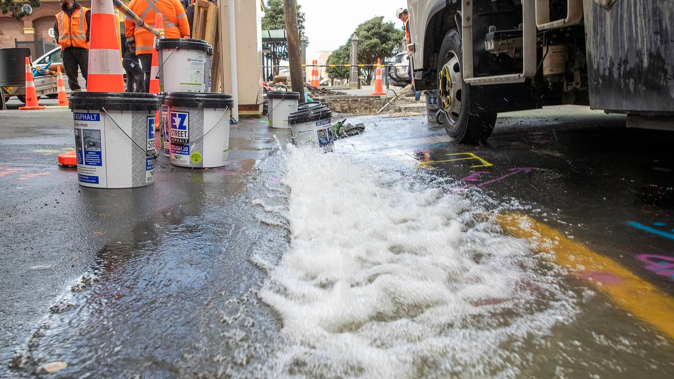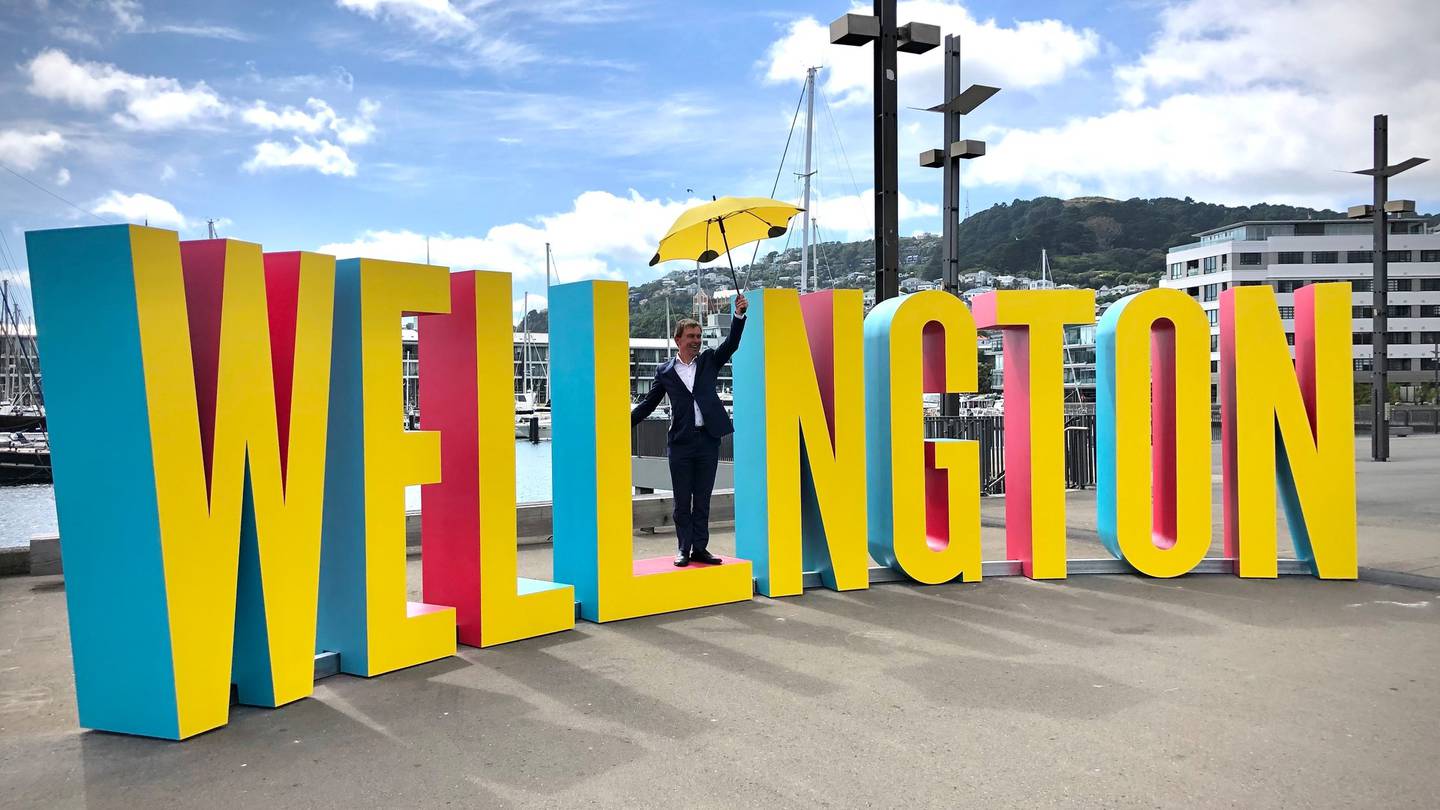
Wellington Water has defended its approach to tackling water leaks across the city and its decision to put the city into level 2 water restriction, explaining the work it is doing often isn't visible to the public eye.
The capital city is moving to a higher level of restriction which prevents the use of sprinklers or irrigation systems - although the use of hoses to water gardens is permitted given the hose isn't left unattended.
With restrictions set to kick off in five days, Summer Breakfast asked the head of regulatory services for Wellington Water, Charles Barker, if it risked the public "splashing out" between today and Wednesday.
Barker rejected the suggestion, saying the public was usually considerate of the city's wider need to be sustainable with its water use.
"Our experience is the people of Wellington region are sensible with their water use and as we've seen at level 1, they've responded really well to being given all the information that we can give as early as we can," he said.

Barker was asked about the impression that Wellington Water is making little to no progress on the city's water problems, specifically around leaks that have been spotted around the city in recent months.
Summer Breakfast pushed Barker on why the agency appeared slack on fixing the leakages, to which he said he empathised with the frustration that people felt passing leaks each day.
However, Barker said, the work being done was more than met the eye.
"The assurance I can give to those people is that with the resources Wellington Water has, we are going after the big leaks and sometimes those aren't seen," he said.
"The reason we're going after big leaks and the ones you can't see all the time is that we need to get the volume of leakage down. If we get the volume down, it's our best chance of keeping the region at low levels of restriction in the shortest amount of time."
Barker said his team was working on several leaks, but there was no single leak that was considered the biggest issue at present.
"What [our team does] is work through a prioritisation programme and they figure out a system for what they're doing, then they methodically work through the highest volume leaks."
According to Barker, a commonality across all the parties involved with water was their frustration with the quality of infrastructure and the age of the city's pipes and water systems.
Wellington Water would like to see these improved and Barker said the agency would support any reform and changes that would achieve that. He called the infrastructure very old and "historically very underinvested in".
One of the many factors that play a role in a stable water network is supply, the primary concern of Wellington Water at present, according to Barker, is the high level of water loss the city appears to be experiencing.
"It's sitting at around 44 per cent," he said.
"If we're losing 44 per cent of our water, you can understand the emergency that Wellington Water had around addressing the leakage. Long-term, of course, we need some supplies because as growth increases we need more water for the region, but at the moment we're losing [44 per cent] of the water that we do put into the pipes, I think you can see there's a common place to start."
MetService forecasts a potentially heavy rain dump arriving over the country from Tuesday next week that could last up to five days, but Barker said a burst of precipitation likely wouldn't change the approach to restrictions.
He said his team monitors some factors - weather included - then provides advice to the council.
"Our advice is that as we approach the demands period, which is usually around Waitangi or Wellington Anniversary Day, we need to prepare the region for that," said Barker.
"So a bit of rain is going to be great but it doesn't change the underlying factors that require the move to level 2."
Barker said his team was doing the best it could to navigate the challenges the lack of water and ageing infrastructure required, but understood frustration around slow progress.
"I can give assurance that the sector is very efficient and effective at using that funding, but the councils are under a lot of pressure too," he said.
"They're doing the best they can to give us the funding we require but everyone knows the different pressures the councils are under."
Take your Radio, Podcasts and Music with you









